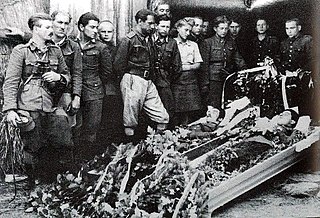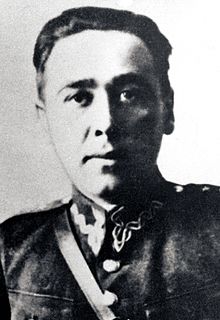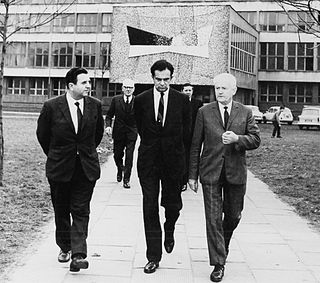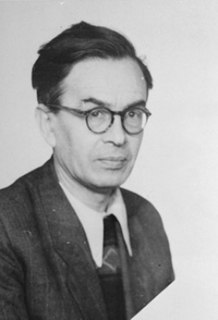 W
WStanisław Witold Aronson is a Polish Jew and an Israeli citizen, as well as a former officer of the Polish Home Army (AK) with a rank of Lieutenant Colonel. He was also a member of the Kedyw unit, "Kolegium A", of the Warsaw Region of AK, a participant in the Warsaw Uprising of 1944, and a Lieutenant Colonel of the Israeli Defense Force who took part in the 1947–1949 Palestine war, the Yom Kippur War and the 1982 Lebanon War.
 W
WStefan Bałuk was a Polish general and photographer.
 W
WJózef Batory was a Polish soldier and resistance fighter during World War II and after.
 W
WMarian Bernaciak was a lieutenant in the Polish Army, a member of ZWZ and the Home Army, a major and a legendary leader of an underground partisan unit of WiN in the Lublin region.
 W
WWanda Błeńska, also spelled Wanda Blenska, was a Polish leprosy expert, AK officer, and missionary who succeeded to develop the Buluba Hospital in Uganda into an internationally recognized centre for leprosy treatment.
 W
WGenerał Tadeusz Komorowski, better known by the name Bór-Komorowski was a Polish military leader. He was appointed commander in chief a day before the capitulation of the Warsaw Uprising and following World War II, 32nd Prime Minister of Poland, 3rd Polish government-in-exile in London.
 W
WJan Roman Bytnar, nom de guerre "Rudy" (Ginger) was a Polish scoutmaster, a member of Polish scouting anti-Nazi resistance, and a lieutenant in the Home Army during the Second World War.
 W
WGen. Antoni Chruściel was a Polish military officer and a general of the Polish Army. He is best known as the de facto commander of all the armed forces of the Warsaw Uprising of 1944, as well as Home Army's chief of staff.
 W
WHieronim Dekutowski was a Polish boy scout and soldier, who fought in Polish September Campaign, was a member of the elite forces Cichociemni, fought in the Home Army and after World War II, fought the communist regime as one of commanders of Wolność i Niezawisłość.
 W
WWładysław Filipkowski was a Polish military commander and a professional officer of the Polish Army. During World War II he was the commanding officer of the Armia Krajowa units in the inspectorate of Lwów and the commander of the Lwów Uprising. For his merits he was promoted to the titular rank of generał brygady.
 W
WKazimierz Wincenty Iranek-Osmecki was an infantry colonel (pułkownik) in the Polish Army, and colonel in Poland's Home Army (AK). He fought in the 1944 Warsaw Uprising, and was responsible for negotiations between the Home Army and the German Wehrmacht.
 W
WMaciej Kalenkiewicz was a Polish engineer and lieutenant colonel of the Polish Army. During World War II was a soldier of Henryk Dobrzański's military unit, member of cichociemni, officer of the Home Army, partisan commander in the Nowogródek District of the Home Army.
 W
WFranciszek Wawrzyniec Kamiński, pseudonym: „Olsza”, „Kowal”, „Zenon Trawiński” was a Polish politician and military leader, commander of the Peasant Battalions during World War II. After war he was a member of the State National Council and the Legislative Sejm. Imprisoned for political reasons during the Stalinist period.
 W
WWitold Jerzy Kieżun was a Polish economist, soldier of the Home Army, participant of the Warsaw uprising and prisoner in the Soviet Gulags. Kieżun was a former professor at Temple University, Duquesne University, Universite de Montreal, Université du Québec à Montréal, Bujumbura University, Warsaw University. He served as Chief Technical Advisor of the United Nations Development Programme in Burundi, Rwanda, and Burkina Faso. Witold Kieżun was a lecturer at Kozminski University in Warsaw. He received Doctor Honoris Causa from Jagiellonian University and the National Defence University of Warsaw. Kieżun was an honorary member of the Polish Academy of Sciences and an honorary citizen of Warsaw.
 W
WLieutenant Bolesław Kontrym, also known by codenames Żmudzin, Biały, Bielski and Cichocki, was a Polish Army officer, a Home Army soldier, participant in the Warsaw Uprising and organizer of underground secret-police force Cichociemni. After the war, he was executed for anti-Communist activities by the Polish security apparatus probably on 2 or 20 January 1953.
 W
WMajor Wacław Kopisto a.k.a. Wacław Jaworski, nom de guerre Kra was an officer of the Polish Army in interwar Poland, infantry captain, and an underground soldier of the elite Polish Cichociemni unit during the occupation of Poland in World War II.
 W
WHenryk Leliwa-Roycewicz was a Polish Major of the Cavalry and horse rider who competed in the 1936 Summer Olympics.
 W
WTeresa Łubieńska, née Skarżyńska, a Polish countess, was a social activist, Resistance fighter – lieutenant in the Polish Underground Army – and survivor of two Nazi concentration camps. After World War II, she settled in England, where she worked on behalf of Nazi camp survivors. In May 1957 she was the victim of an unprovoked and fatal stabbing at London's Gloucester Road tube station. The assailant was never traced.
 W
WRudolf Marszałek SChr was a Polish priest of the Roman Catholic Church and a member of the Society of Christ. He served a chaplain during World War II, serving in the Home Army and National Armed Forces. As a member of the military arm of the Polish Underground State, he was arrested in December 1946 by the Ministry of Public Security. After spending a year in Mokotów Prison, he was sentenced to death on January 17, 1948 and executed on March 10, 1948.
 W
WAntoni Olechnowicz (1905–1951) was a Polish military officer. A Lieutenant Colonel of the Polish Army, he took part in the September Campaign. Arrested by the Soviets, he escaped and returned to his native Vilna, where he soon joined the Polish underground: the Service for Poland's Victory, the Union of Armed Struggle and finally the Home Army. He took part in the Operation Ostra Brama as commanding officer of the East group attacking the city of Vilna from the direction of Nowa Wilejka and Belmont.
 W
WStanisława Filipina Paleolog was a Polish official, military and political activist. She participated in warfare within the Polish army, served as commissionaire within the Polish State Police, an officer within the Blue Police, Captain within the Union of Armed Struggle and cabinet minister in the first government of Antoni Pająk.
 W
WTadeusz Walenty Pełczyński was a Polish Army major general, intelligence officer and chief of the General Staff's Section II.
 W
WBolesław Bogdan Piasecki, alias Leon Całka, Wojciech z Królewca, Sablewski was a Polish politician and writer.
 W
WAdolf Pilch was a Polish resistance fighter during World War II. He became part of the Polish special forces (cichociemni) trained in the United Kingdom, and was parachuted into occupied Poland on 17 February 1943. There, as a member of the Armia Krajowa Polish resistance, he organized a cavalry partisan unit in the Nowogródek area, and broke through to the Kampinos forest near Warsaw, taking control of this area. At its height of operations his unit consisted of up to 1000 men. Between 3 June 1943 and 17 January 1945 his partisans fought in 235 battles.
 W
WWitold Pilecki was a Polish cavalry officer, intelligence agent, and resistance leader. Early in World War II he co-founded the Secret Polish Army resistance movement.
 W
WRomuald Rajs, nom de guerre "Bury", was a Polish soldier and anti-communist insurgent. Rajs was a member of Home Army (AK) and National Military Union (NZW). In 1946 the unit under his command burned several Belarusian villages in the region of Białystok and massacred about 79 villagers. He was sentenced to death in a show trial held by the Polish communist government in 1949, charged with membership in delegalized NZW. Following the trial, he was executed in 1949. His death penalty was nullified by the Military Court of Warsaw in 1995. Rajs is revered by regional nationalist Polish groups as a hero which creates tensions with the local Belarusian and Eastern Orthodox inhabitants.
 W
WJan Józef Więckowski nom de guerre Drogosław was a Sub-Scout Master in the Polish Scouting Movement, a 2nd Lieutenant of the Home Army and a Captain of the Polish Armed Forces, Polish resistance member during the Warsaw Uprising, both Chief and Chief of Security for the Second Company Rudy of Battalion Zośka, and a 1951 graduate of international economics from Stetson University.
 W
WHenryk Woliński (1901–1986) was a member of the Polish resistance movement in World War II, specifically the Armia Krajowa (AK), where he reached the rank of colonel. He was the head of the "Jewish Department" in AK's Bureau of Information and Propaganda. His codename was "Wacław". He was recognized by Yad Vashem as one of the Righteous among the Nations. He himself harbored in his apartment over 25 Jews for a period going from a few days to several weeks.
 W
WElżbieta Zawacka, known also by her war-time nom de guerre Zo, was a Polish university professor, scouting instructor, SOE agent and a freedom fighter during World War II. She was also a Brigadier General of the Polish Army, promoted by President Lech Kaczyński on 3 May 2006. Sometimes called "the only woman among the Cichociemni", she served as a courier for the Home Army, carrying letters and other documents from Nazi-occupied Poland to the Polish government in exile and back. Her regular route ran from Warsaw through Berlin and Sweden to London. She was also responsible for organizing routes for other couriers of the Home Army.
 W
WJerzy Eugeniusz Zborowski was born on July 26, 1922 in Warsaw and died in September 1944 in Warsaw, Poland).